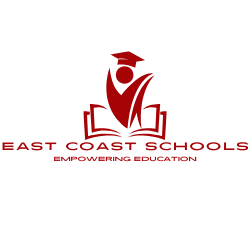Attending college on the East Coast offers a dynamic and vibrant campus experience, but balancing rigorous academics with an active campus life can be challenging. With prestigious institutions like Harvard, Yale, and NYU offering a range of extracurricular opportunities, it’s easy to feel overwhelmed. However, mastering the art of balancing your academic responsibilities and social commitments is key to making the most of your college years. In this blog, we’ll share actionable tips on how to thrive both in the classroom and beyond the books at East Coast colleges.
1. Create a Structured Schedule
One of the best ways to manage your time effectively is to create a structured weekly schedule that includes academic and social activities. You prioritize both aspects of your life by blocking out time for study sessions, club meetings, and social events. East Coast schools are known for their fast-paced environments, so a well-organized calendar will help you stay on track and avoid feeling overwhelmed.
Tip: Use tools like Google Calendar or Trello to map out your commitments and set reminders for important deadlines, events, and study times.
2. Prioritize Your Academic Commitments
While it’s tempting to immerse yourself in everything campus life has to offer, remember that academics should always come first. East Coast colleges are academically rigorous, and maintaining a solid GPA is crucial for internships, future job prospects, and graduate school opportunities. Prioritize your most challenging subjects and work on assignments early to avoid last-minute stress.
Tip: Identify your peak productivity times (morning, afternoon, or evening) and schedule your most demanding study sessions during those hours to maximize focus and efficiency.
3. Be Selective with Extracurriculars
East Coast colleges offer an array of clubs, sports, and extracurricular activities, making it easy to get involved in everything. However, trying to do too much can lead to burnout. Instead, choose activities that align with your academic and career goals or that help you recharge from your studies. Whether joining a professional club, participating in intramural sports, or engaging in community service, ensure your extracurriculars enhance your personal and academic growth.
Tip: Focus on quality, not quantity. Aim for a few deep commitments rather than spreading yourself too thin across multiple activities.
4. Develop Strong Time Management Skills
East Coast colleges, especially large universities like Columbia or Georgetown, often have hectic schedules with large lecture classes, meetings, and social events. Learning how to manage your time effectively is essential for success. Break tasks into manageable chunks and tackle them one by one. Learning time management is a skill that will serve you well throughout college and beyond.
Tip: Use the Pomodoro Technique, where you work for 25 minutes and then take a 5-minute break. This method helps maintain concentration and reduces procrastination.
5. Take Advantage of Campus Resources
Most East Coast schools offer a wealth of resources to help students succeed academically while balancing their personal lives. From tutoring centers to counseling services, these resources are there to support your well-being. If you struggle to juggle everything, don’t hesitate to contact advisors or professors. Many schools also offer workshops on time management and stress reduction.
Tip: Visit your school’s academic advising office or student wellness center for tips on balancing academics and campus activities more effectively.
6. Make Time for Self-Care
Burnout is a real issue for college students, especially when balancing academics, extracurriculars, and social life. Taking care of your mental and physical health should be a top priority. Whether through exercise, meditation or simply getting enough sleep, make time for activities that help you recharge. A healthy body and mind will make your studies more productive and focused.
Tip: Schedule “me time” into your routine. Whether walking in Boston’s Public Garden or attending a yoga class at your campus gym, prioritize activities that reduce stress.
7. Seek Help When Needed
If you struggle to balance everything, don’t be afraid to ask for help. Professors, academic advisors, and even peers can offer advice and guidance on handling your workload. Many East Coast schools also have peer mentoring programs where you can get advice from upperclassmen who have been through the same experiences.
Tip: Join study groups or seek academic tutoring to lighten your load. It’s better to ask for help than to fall behind.
Conclusion
Balancing academics and campus life at East Coast colleges can be challenging, but with the right strategies, it’s entirely possible. You can thrive in both areas by creating a structured schedule, prioritizing your academic commitments, being selective with extracurriculars, and seeking support when needed. Remember, college is not just about academics; it’s about growing as a person, building relationships, and making the most of your time. Embrace your studies and social life, and you’ll make your college experience truly fulfilling.
